Senga White is the Research and Learning Coordinator at Southland Boys’ High School in Invercargill. She has been a school librarian for over a decade.
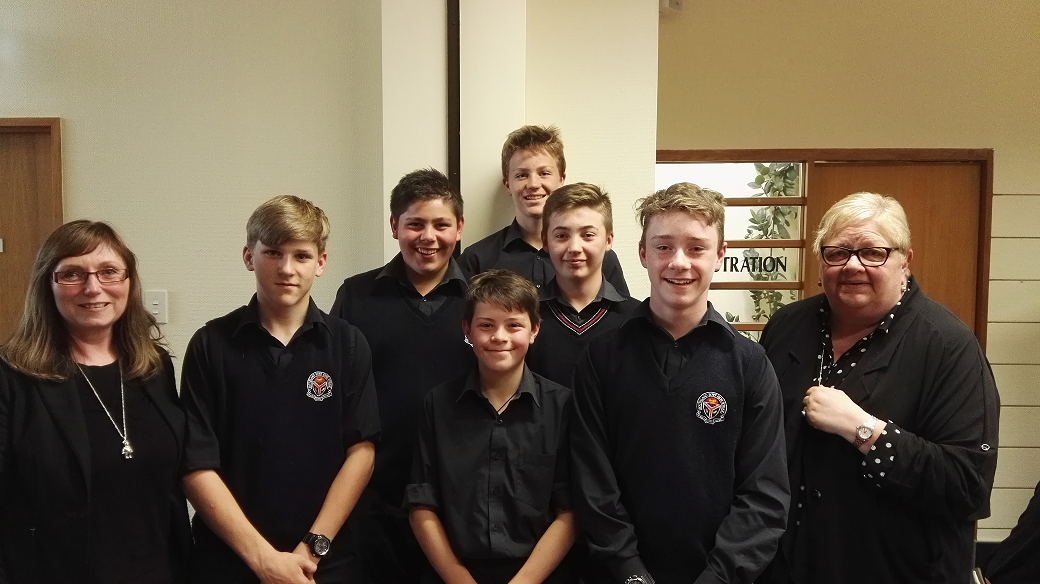
I absolutely love working in school libraries! This profession has become the perfect intersection of my love of reading and learning, and my passion for education, particularly of teenagers.
My career began as a part time library assistant. Fast forward 18 years and I’m now Research and Learning Coordinator at Southland Boys’ High School in Invercargill. While I am also head of library services, the majority of my time is spent collaboratively planning and teaching information literacy and research skills, creating new resources and developing processes to support this.
When I took up this newly created role at Southland Boys’ High School in 2013, it was with equal measures of excitement and nervousness – I had previously been Library Manager at James Hargest College. As it turns out, this new role has provided me with a fresh incubator kitchen to test and refine my approaches to working with educators and students in ever-widening contexts.
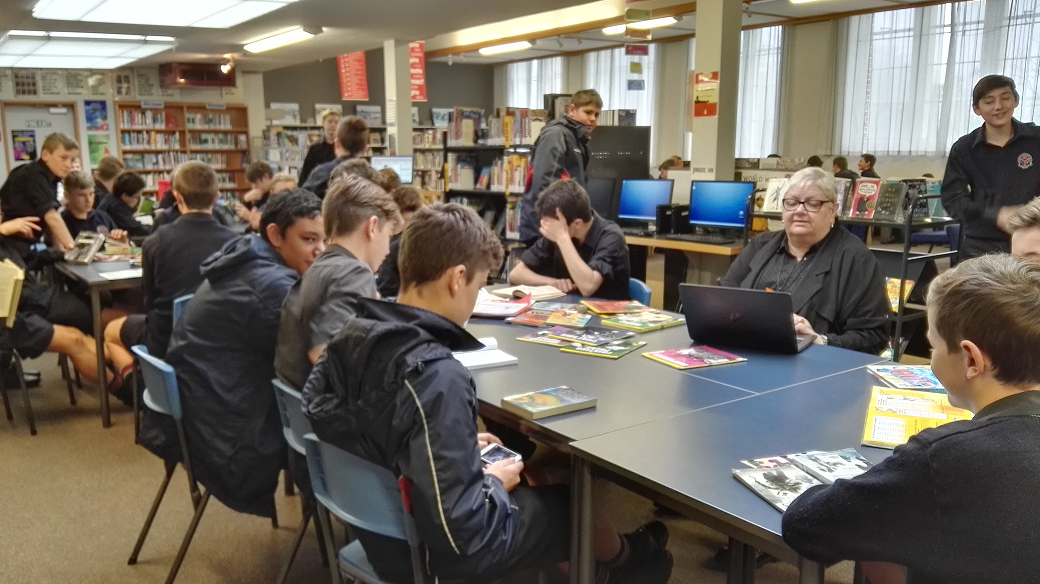
Prioritising readers
One of my favourite things to do is to talk to others about books and reading. So, one of my all-time favourite parts of my job is helping to match boys with books they’ll love (or at least be prepared to give a go). I get plenty of opportunities to do this, and no matter what else might be going on in my day, I physically or mentally put it to one side in favour of making sure the student in front of me gets my undivided attention. Sometimes you only get one shot at turning around a young person’s poor attitude or reluctance to reading or using a library!
I am a huge fan of our New Zealand authors, and I always include at least one of their books when I’m book-talking to a class. I think it is hugely important for our kids to experience storytelling in a setting that’s familiar to them, told in a language they recognise. Last year I read Ella West’s Night Vision, and could just picture the farm and the surroundings throughout the story.
I am a huge fan of our New Zealand authors, and I always include at least one of their books when I’m book-talking to a class.
Expect the Unexpected
I don’t think there is such a thing as a typical day in the life of a school librarian! The only typical thing about my workday is to expect the unexpected! This is a huge part of the reason why I’m approaching 20 years in the profession, as no two days are ever the same, and I love the variety.
I do begin my day the same way. I arrive at work by 8.00am and check the booking sheet and my emails. And, that’s about where the typical part stops. A light schedule of class bookings is no gauge as to how busy the library might be. It is not uncommon for a steady stream of boys to be sent to the library for a variety of reasons. These could include, but not limited to: finding a book to read or a resource for a research assignment, to work on a computer, to practice a speech, to have somewhere quiet to work, for time-out, to read, to play chess, or as a treat because he has finished his work in class.
I also find I often collaborate with teachers on the spot, either when they’re in the with their classes or when they come and find me during their non-contact period. The ability to shift mental gears quickly and smoothly and genuinely love working with people is what makes a great school librarian.
The ability to shift mental gears quickly and smoothly and genuinely love working with people is what makes a great school librarian.
I could be teaching a class online research skills in the computer area, teaching students to note-take or find books in the non-fiction area, or I could be in a classroom demonstrating a database or how to make reserves using our library catalogue.
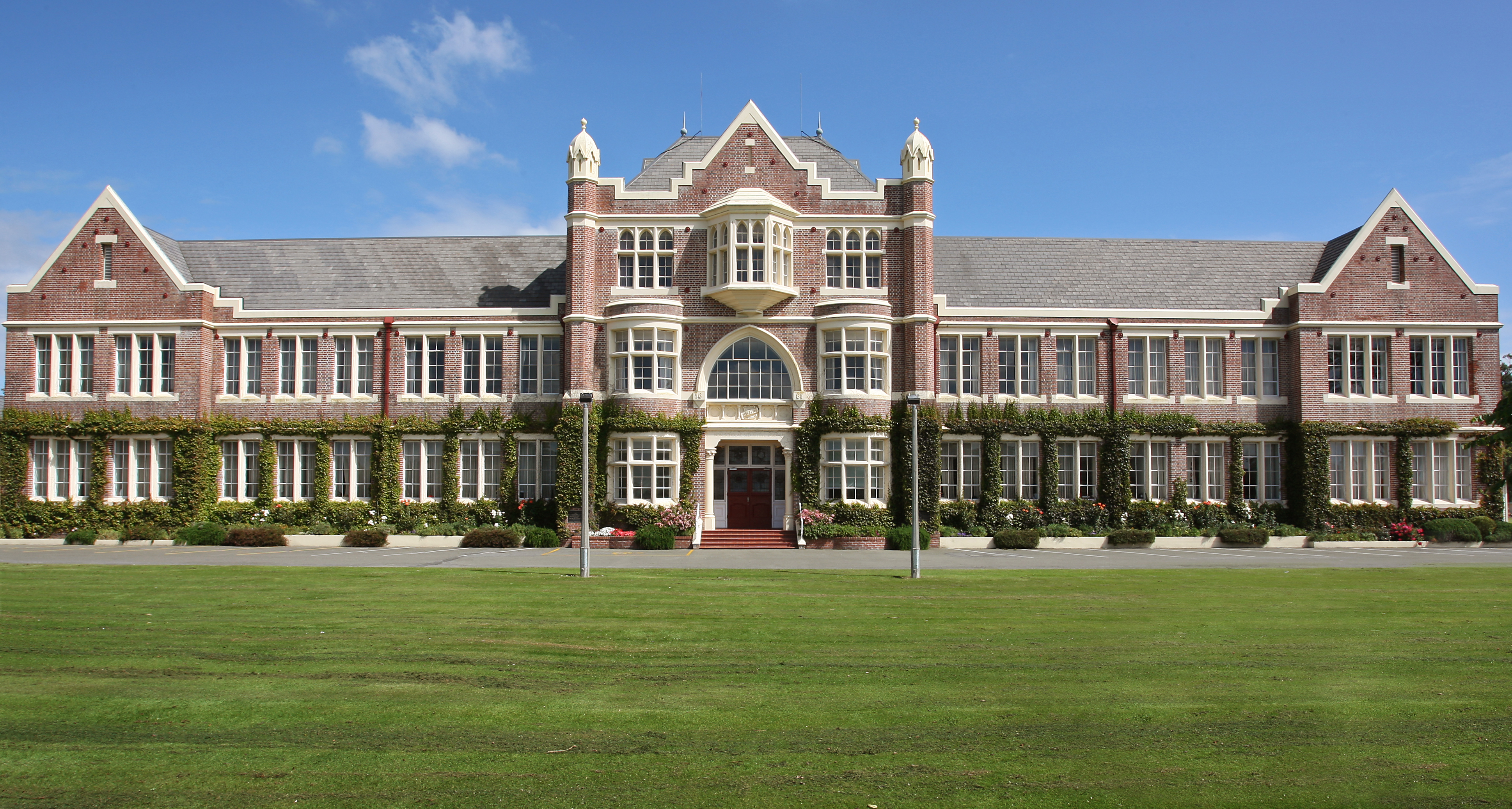
The oldest school library in Southland
It’s amazing what you can achieve on the smell of an oily rag. Southland Boys’ High School Library is arguably the oldest school library in the province. We are situated on the 2nd floor of the main block of the school. The school has the most beautiful façade, looking more like an old university with red brick and ivy, but anyone who has worked in an historic building knows they present a unique set of challenges when it comes to converting them into a more modern learning environment. However, we are blessed with great proportions, high ceilings and beautiful light streaming in from the west, as we overlook the school cricket pitch and the idyllic Queens Park beyond, which we border to the north.
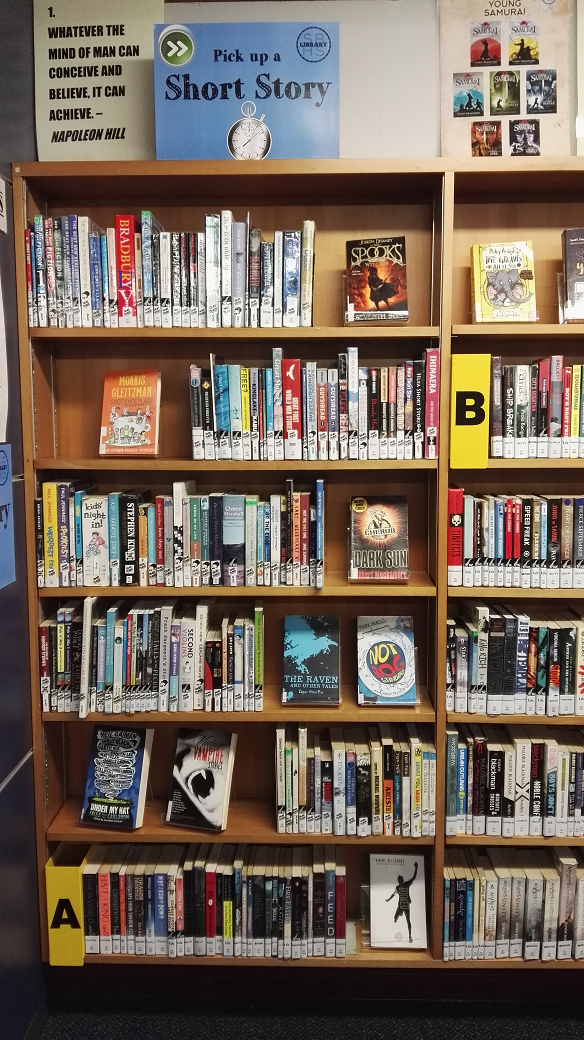
I’m fortunate to work alongside Suzanne Muir, a qualified and experienced librarian, and over the past few years, we’ve had a sustained focus on collection development. This major undertaking is underpinned by a strategic weeding and re-labelling project.
I have also set about purchasing a wider range of popular fiction, replacing worn out copies of well-loved books and filling gaps in series, as well as building a literature collection to support NCEA and scholarship English. We have distilled the existing non-fiction collection, while adding targeted purchases within subject areas that regularly use the library. I also created a new high interest non-fiction section to support more recreational non-fiction reading and condensed our reference section.
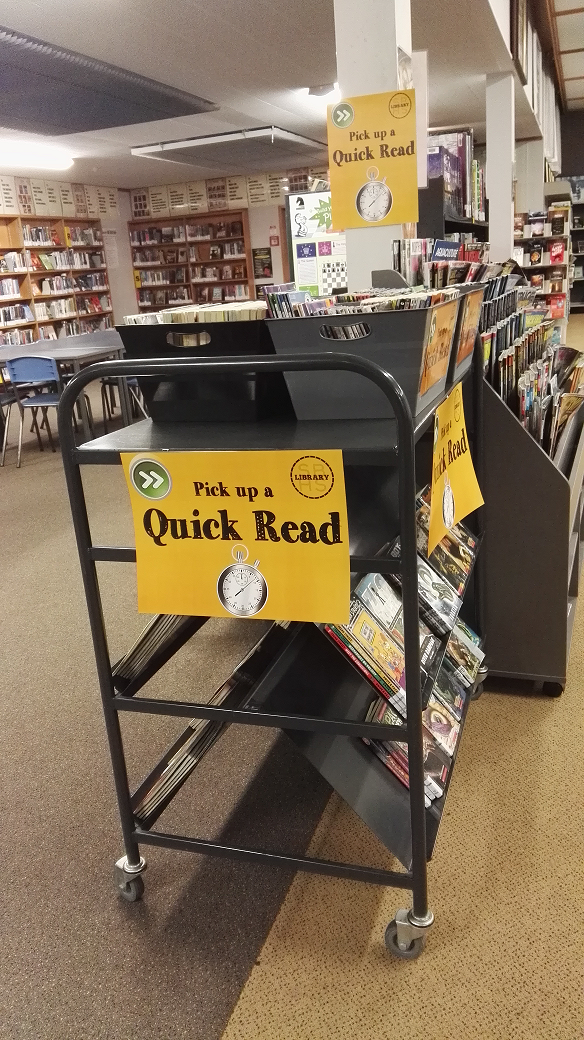
Finally, with inspirational quotes and series posters, new collection signage and angled shelving (courtesy of a Rachel van Riel suggestion), we have freshened what was a relatively old, tired space and made it look more appealing and easier to use.
Competition is key for boys
It’s never difficult to get boys involved in anything that looks like a challenge or a competition, particularly at a junior level (which is why we call our junior book group The Sport of Reading Club.) All the research suggests that reading mileage is crucial, so when I first started at Boy’s High, I wanted to come up with something that would be fun, participatory and that teachers could be involved with and continue to build on in their classrooms. The Hell’s Pizza Reading Challenge had only just begun so I developed a Reading Bingo Board to use alongside this in an attempt to get the boys to read more widely instead of their default of just re-reading all the books in their favourite series or lots of short, quick-reads.
The year 7 and 8 classes particularly, took to this like a duck to water! There were prizes for getting lines finished and stars for every book completed, and of course, the pizza wheel as the ultimate prize. Boys, books and pizza is a match made in heaven!
I have also developed a Reading for Enjoyment Programme to help engage reluctant readers that I offer to teachers as a way of re-focussing their classes on reading or as an introduction to a class inquiry topic.

More junior & senior children’s non-fiction
As much as I am passionate about reading, I am equally passionate about teaching students how to find information, first in physical form and then specifically within that source. Whether for a research assignment, or to satisfy their curiosity about the work around them, I strongly believe the most successful first step a book that is appealing, attractive and at the appropriate level for them.
Something I feel strongly about is the decline in current, suitable New Zealand content for students aged 8-15. New Zealand material is still being published, but not enough, and when great New Zealand content is published, it tends to be aimed at a scholarly or adult audience. The books I repeatedly go back to find on the shelves are now dated and most are out of print.
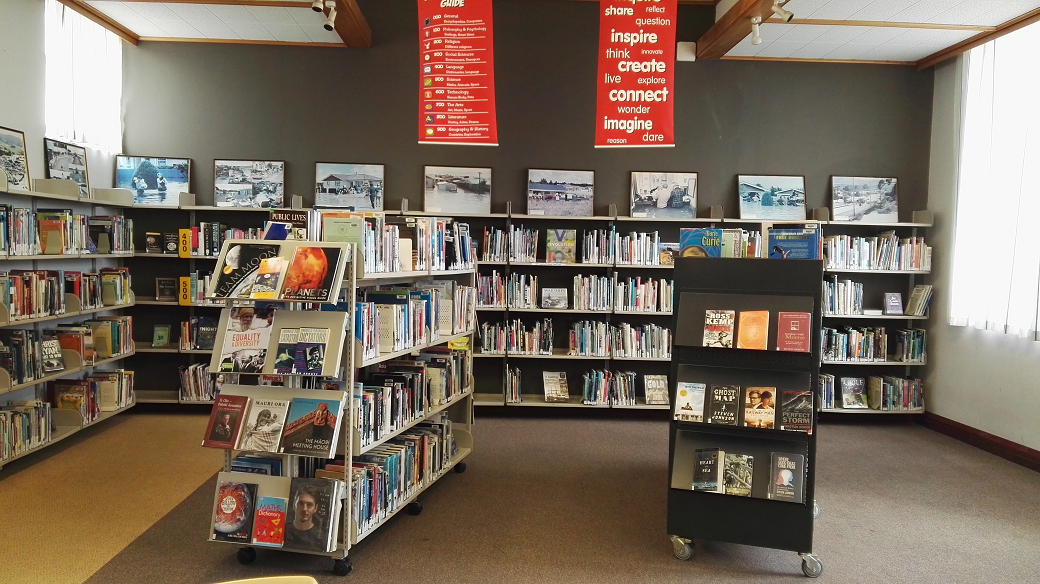
Earlier this year I put out a survey to the school library community asking for blue-sky thinking around non-fiction books with New Zealand content. I found that most of the responses were as I had predicted. One comment really got me nodding my head in agreement, ‘Print is at the heart of education at our school but every time I can’t resource a subject of inquiry with books we risk losing readers.’
My experience has shown that students who struggle with their literacy don’t do well when left to their own devices to research online. I attempt to get a book at a suitable level in the hands of students to kick-start their research, which really does set them up for a successful inquiry. This is true at all levels of the school, in my case from Year 7 to Year 13.
My experience has shown that students who struggle with their literacy don’t do well when left to their own devices to research online.
What we need is a resurgence of high quality and attractive New Zealand print material to support the education of students in our schools, and I will continue to ask questions and seek answers around this issue, which is dear to my heart.
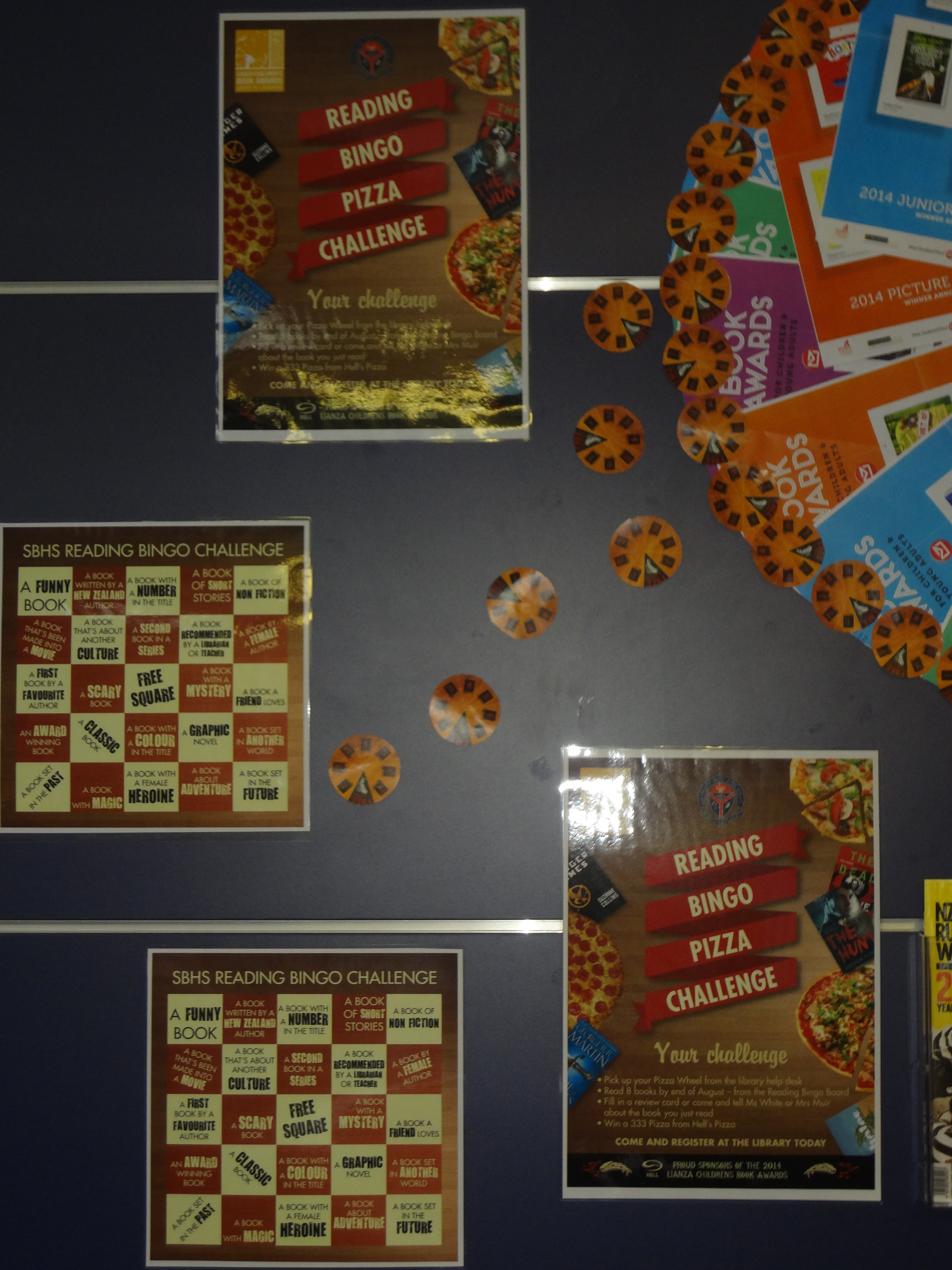
Book Recommendations
I do this all the time! I am always recommending good read-alouds for teachers of year 7 & 8 classes, or top reads for boys, or great books to get students hooked into a subject. So much so, that I have set up Pinterest pages for each of these.
The most recent book I promoted to a teacher was A Soldier’s Tale by M.K Joseph. Written by a New Zealand author, this book set in France in WWII was introduced to me by my 6th form English teacher decades ago. She read it to the class of 16 & 17 year olds, and it has stayed with me ever since. The teacher I recommended it to was looking for good books around the theme of war to use with her Y12 class, and I suggested she should read it.
The most recent book I gave to a student to read was Steven Johnson’s Where Do Good Ideas Come From, the Natural History of Innovation. I have recommended this book to several students in recent years, due to their innate curiosity about the world around them. Another of his books The Ghost Map, has the best opening passage of any non-fiction book I have ever read. The description of London in the 19th century brings the story alive, and grabs the reader from the first page. A great read-aloud.
It is strange indeed, to cross paths with a librarian who isn’t a reader. I have been a reader my entire life. In fact, I’m the kind of reader who gets twitchy when they don’t have enough books on their to-read pile! I love stories in every form. I love old-fashioned print books best, but I also have a Kindle and read online, I enjoy listening to audio books and also enjoy reading book-reviewing sites. I read lots of fiction, particularly historical crime fiction, but I also love memoirs, inspirational stories, quirky articles and I read extensively around education and library-related issues. And I love my job.
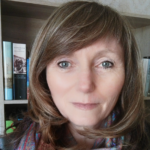
Senga White
Senga White is a professionally registered librarian, leader and information literacy expert, developing the Information Literacy Skills Framework, and the Tertiary Prep Programme, and is the recipient of several awards, including one for the promotion of literacy and enjoyment of reading.Among her current projects: a 3-year Information Literacy Spaces TLRI and ULearn 2018 presentation on collaborative teacher/librarian partnerships. She is a passionate lifelong learner, currently undertaking studies towards a Postgraduate Certificate in Applied Practice (digital and collaborative learning.)



